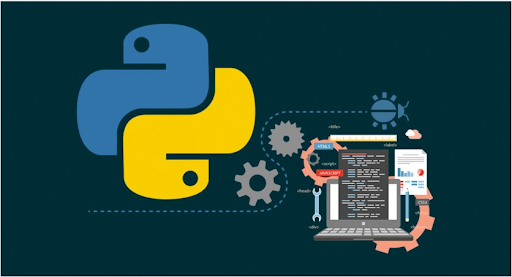Websites work as reputation makers or breakers for businesses. So, choosing the best web languages to get one is crucial. Python web development is beneficial and will help your business grow. But as we know cards have two facets, and so is with Python. If you want to know about its pros and cons, then let’s dive in.
Is Python good for web development?
Web development is vast and represents the business reputation. And Python is one of the first languages to come to mind. Python has gained traction among some of the biggest brands in the world, such as YouTube, Netflix, and Instagram. It is popularly known for its readability, versatility, and vast libraries. Well-known firms use Python for web development due to its efficiency. Python is essential to understand both strengths and limitations.
Pros of using Python for web development
Here are some of the benefits of using Python for web apps.
Versatile use
One of Python’s most celebrated features is its versatility. As a dynamically typed language, it handles various web development tasks. This flexibility makes it suitable for developing applications across different platforms. You can hire Python developers for more assistance. It includes web, desktop, and even data-intensive applications. Python’s compatibility with other languages and integration tools like Apache, Nginx, etc.
Supportive community
Python has one of the largest developer communities with experts contributing to libraries. If you’re considering adding Python for web development with multiple resources. This welcoming and supportive community is also one of Python’s major draws. Newbies can benefit from the wealth of learning resources to make Python a favorite for developers.
Development cycles
Python’s straightforward syntax with a rich library ecosystem to build apps swiftly. This language’s design encourages clean and readable code to reduce debugging time. The fast development cycles associated with Python are highly advantageous. Especially for startups and other enterprises that need to get products to market quickly.
Extensive libraries
Python’s libraries and frameworks are among the most comprehensive and well-supported. Django is particularly popular due to its “batteries-included” philosophy with multiple features. Flask is for its simplicity and flexibility.
Related Blog: A Comprehensive Guide to Hiring Python Developers You Must Follow in 2025
Cons of using Python for web development
Here are some of the disadvantages of using Python for web apps.
Performance limitations
Python is slower because it’s an interpreted language than others. It means that line-by-line code gets executed for a slight performance. Python’s performance is sufficient for various web applications. Real-time applications need high-speed processing in Python.
Compatibility constraints
Python is highly compatible with various tools and services; however, there are some exceptions. Integrating Python for web development with certain frameworks can be challenging. While solutions exist, they can require additional configuration with compatible languages. Additionally, Python is not ideal for mobile development to handle complex needs.
Memory consumption
Python consumes more memory than other languages. It can become an issue for applications with large amounts of data for complex processing. Python with a garbage collector for memory management plans large-scale web projects. You can hire Python developers for more assistance.
Experienced developers
Although Python is popular, the demand for experienced developers has surged recently. Depending on your location, finding skilled developers can be a challenge. The high demand for Python for web development professionals may also drive up salaries. So, it can be a consideration for companies operating within a specific budget.
Top popular Python frameworks for web development
Let’s look at some well-known Python web development frameworks.
Django
It is a high-level web framework renowned for its “batteries-included” philosophy. With Django, developers can build data-intensive applications that scale easily. It is structured around the MTV architecture, built-in functionalities, and more. This makes Django ideal for building complex applications quickly without sacrificing performance.
Flask
Flask is a lightweight framework for building smaller web applications and APIs. It offers only the essentials, which gives developers control and flexibility. Flask’s simplicity and modularity make it an excellent starting point for new developers.
Pyramid
Pyramid is a highly flexible web framework that suits large-scale, complex applications. Designed to handle various projects, from simple to complex apps. Python for web development allows developers to select the components and tools that meet firm needs.
TurboGears
It is a full-stack framework that adapts to various project requirements for developers to build apps. And that can be in minimal mode or full-stack mode. TurboGears includes built-in tools for ORM, templating, and form validation. So, to make it versatile for applications that range from simple to complex.
Conclusion:
Python is an excellent choice for web development if you’re looking to balance simplicity with power. The robust ecosystem and supportive community make it accessible for developers. Or you can consult a Python development company for more assistance.
